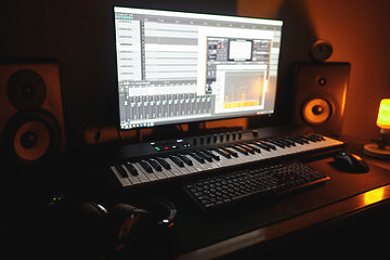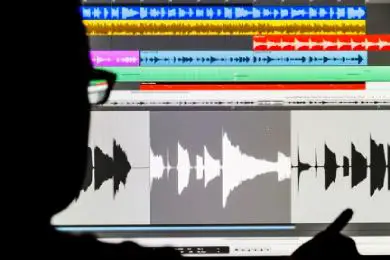What is a DAW? This is a question that many people have, especially those who are new to the world of music production.
A DAW allows you to record, edit, mix, and master audio. It also provides a variety of virtual instruments and effects that you can use to create your own sounds. You can think of a DAW as a digital version of a traditional recording studio.
In the past, if you wanted to record music, you would need to rent or buy expensive equipment. But with a DAW, all you need is a computer and some basic audio equipment.
Why Use a DAW?
A DAW allows you to record, edit, and mix audio. It also provides a variety of virtual instruments that you can use to create your own sounds.
You can think of a DAW as a digital version of a traditional recording studio. In the past, if you wanted to record music, you would need to rent or buy expensive equipment.
But with a DAW, all you need is a computer and some basic audio equipment.
What Features Does a DAW Have?
There are many different features that come with a DAW, if you’re new to music production, then this is the perfect place to start. So let’s get started!
A DAW typically consists of the following components:
- A sequencer: This is where you assemble and edit your audio recordings or MIDI files.
- A mixer: This allows you to mix together multiple tracks of audio or MIDI data.
- Plug-ins: These are optional software modules that can add effects or virtual instruments to your DAW.

What Is The Best DAW For Beginners?
The best DAW for beginners is Ableton Live because it is easy to use and has a wide variety of features. It can also run on less powerful systems making it more accessible than some other DAWs that are more system hogs. If you’re new to music production, then this is the perfect DAW to start with.
What Are Some Of The Best DAWs On The Market?
Some of the best DAWs on the market include Ableton Live, Logic Pro X, Pro Tools, FL Studio, Reaper, Reason, and Studio One. These DAWs are popular because they offer a lot of features and are easy to use.

I wrote a much more detailed article going over The 7 Best DAWs For Producing Music and how you can choose one that fits your creative process or needs best.
How Much Does a DAW Cost?
The price of a DAW depends on the features it offers and the brand. Some DAWs can cost as little as $60 while others can cost more than $1000.
| DAW | Intro Price (USD) | Standard Price (USD) | Suite Price (USD) | Trail |
| Ableton Live | $99 | $449 | $749 | 90 Days |
| FL Studio | $99 | $199-299 | $737 | Unlimited (can’t open saved projects) |
| Pro Tools | X | $29-34/month | $299/year | 1 Month |
| Logic Pro | X | $199 | X | 90 Days |
| Reaper | X | $60 | $225 commercial | 60 Days |
| Reason | X | $499 | X | 30 Days |
| Studio One | $99 | $399 | $14/month, 164/year | 30 Days |
Do You Need a Powerful Computer To Run a DAW?
No, you don’t need a powerful computer to run a DAW. A DAW will run on most computers as long as it meets the minimum system requirements.
If you are looking for better performance get the fastest single-core processor you can afford, with 8 to 12 physical cores.
Most audio software utilizes one core so having lower CPU power spread among multiple cores is not as ideal. If a single core becomes overloaded, it does not matter how many other cores you have, there will be audio glitches in real-time playback.
When it comes to RAM 8 GB is typically enough, but if you use lots of sample-based instruments you may need more. I like to have 16 BG available so I don’t have to ever worry about needing more.
What Are The Minimum System Requirements For a DAW?
| DAW | Processor (CPU) | Memory (RAM) | Harddrive Space |
| Ableton Live | Intel Core i5 processor or an AMD multi-core | 8 GB | 3 GB – 76 GB |
| FL Studio | Intel Pentium 3 CPU or 2 GHz AMD | 8 GB | 4 GB |
| Pro Tools | Intel Mach – Intel Core i5 | 16 GB | 15 GB |
| Logic Pro | macOS 11 | 8 GB | 6GB – 72 GB |
| Reaper | Intel Pentium 3 CPU or 2 GHz AMD | 2 GB | 134 MB |
| Reason | Intel or AMD multi-core | 4 GB | 5.5 GB – 25.5 GB |
| Studio One | Intel Core i3/AMD A10 processor | 4 GB | 2.5 GB – 32.6 GB |
Summary
A digital audio workstation, commonly called a DAW, is a piece of software used to create, record, mix, and master audio. There are many different DAWs available all with their own unique take on what makes a good DAW and workflow.
There is no best DAW, just one that matches your music creation process or feature requirements better.
I recommend choosing and learning one DAW first so you learn and understand the basics of music creation instead of not really knowing what you like or need when producing music.
